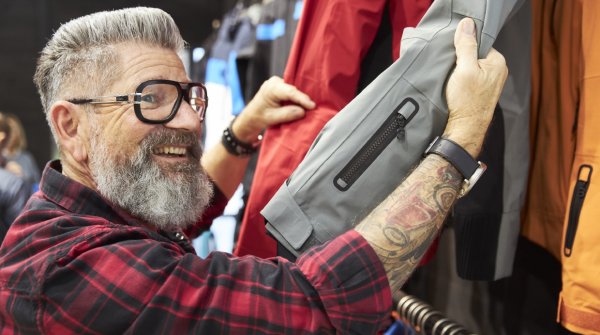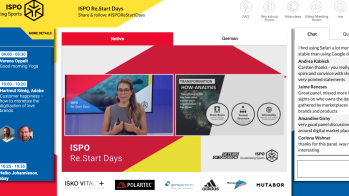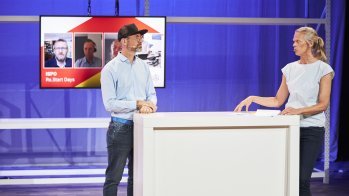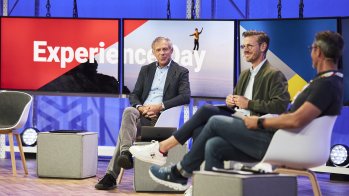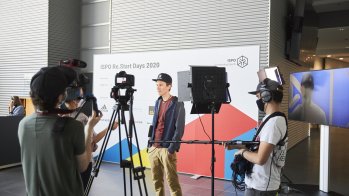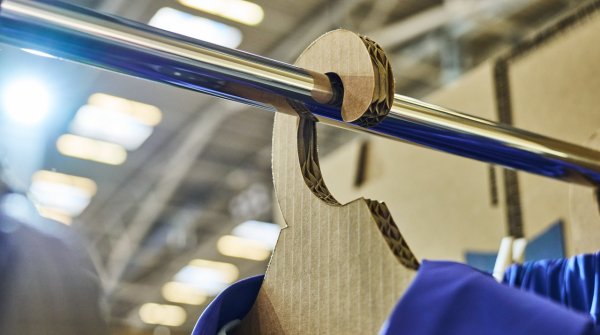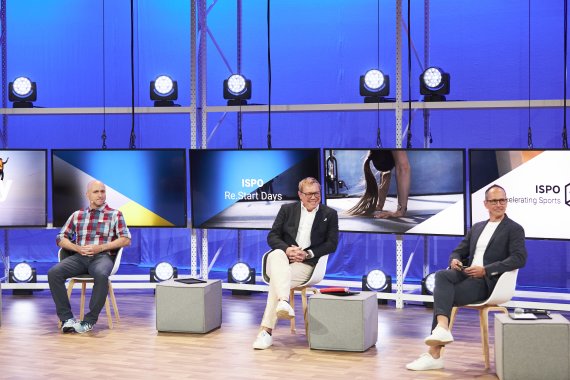
"If you want everyone on a crowded bus to take a big step forward at the same time, the bus driver has to step on the brakes." Martin Riebel, managing director of the SSO with the brands Deuter, Maier Sports, ORTOVOX and GONSO, creates a crisp picture to summarize the effects of the corona pandemic. Of course, this was often painful, "but we have taken the big step forward together in the sports industry."
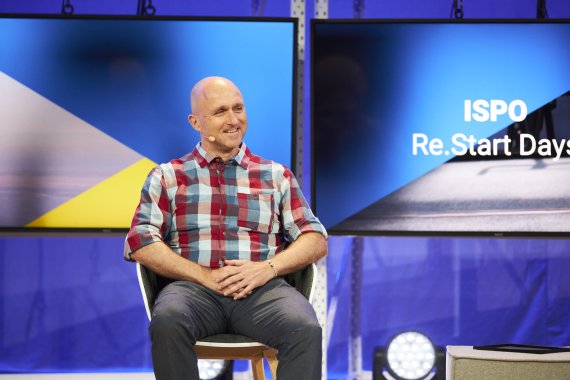
The whole world and of course the outdoor industry was thrown off course by the novel virus. Or, to stay with the picture: came to a standstill. At the ISPO Re.Start Days, after the lockdown, the focus should now be on how to make a successful restart and how the outdoor industry will go on from it. At a brand panel in Munich, six industry representatives reported their experiences of the past months and looked for answers.
The biggest surprise was the speed of development, says EOG President Mark Held. Both in the big slump as a result of the lockdowns in March, but also in the beginning recovery in May. "During the lockdown, more and more people discovered outdoor activities for themselves, and that certainly helped us," says Held.
The figures presented by the President of the European Outdoor Group are encouraging. In a survey by the EOG, 98 percent of the companies stated that they would survive the crisis. An important conclusion of the EOG President: "The industry will emerge from the crisis stronger than before." But Mark Held is also certain that the way in which consumption is handled will change. "Corona has changed a lot. Even where you wouldn't expect it at first glance," says Held. The demand for sustainable products will increase. This is also the view of 82 percent of the companies surveyed.
After the initial shock in March, outgoing Deuter managing director Martin Riebel is also looking to the future with renewed optimism. "We don't need to talk about the economic situation, there have been dramatic cuts everywhere. However, I do believe that the situation for industry and the retail trade in June has developed in such a way that we can really all be grateful", Riebel said.
At running specialist On, the pandemic almost triggered a kind of boom, explains Caspar Copetti. "It was very interesting for us that people actually started to move more after the first Covid shock," explained the company founder. "Most people worked at home. After 10 zoom calls a day, there was a strong need to go outside and move."
The situation for retailers was much more problematic. About eight thousand shops worldwide have shoes and clothing from On in their assortment. "And 90 percent of On retailers were temporarily closed," Copetti looks back. Here, too, On reacted quickly. Not all small running shops are already selling through all channels. "We made it possible for them to sell under their own name via the On-Ramp-Shop with full margins," says Copetti.
The quick reaction and the close partnership with the dealers seems to have averted the worst. The new running boom also seems to be helping: "For the period of the lockdown we have a growth of about 50 percent compared to the previous year," says Caspar Copetti.
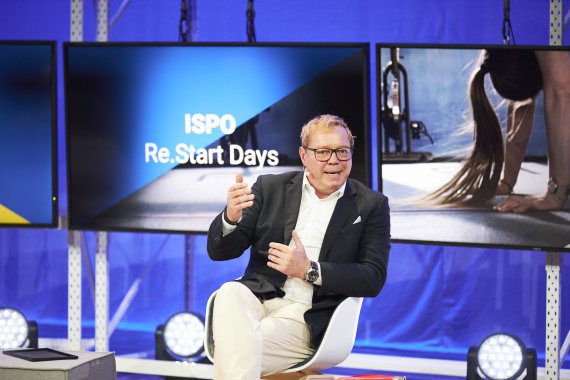
The Schöffel family business has experienced no less than a cultural break. The winter sports and outdoor specialist from Schwabmünchen has been encouraging people to enjoy nature and break away from everyday life for over 200 years. "Ich bin raus" (I'm out) has been the company's witty claim since 2012. Until the end of March. "In this lockdown, our first reaction was to protect our employees and to preserve our company," says Marketing Director Reiner Gerstner. The second consideration was how a brand can help to inspire people to behave in the right way. "I stay in" is the new claim for the coronavirus times.
"We wanted to really inspire people as a good example of how we can overcome this crisis," says Rainer Gerstner. The decisive factor in the crisis, he says, was "how we deal with one another, how we look after one another, what we do for one another and what we do for the community. I found that very positive. And hopefully that will remain this way," says Gerstner.
Highlights of the ISPO Re.Start Days in pictures
For Mammut CEO Dr. Oliver Pabst, the lockdown has created a momentum of its own in the outdoor industry. Everything is currently in motion, says Pabst. "And that is what makes us as an industry. If we shape the future positively, we are very strong," says the Mammut CEO.
As for Mammut as a company: "I have learned that at Mammut we all like challenges together. We have accepted the changes and are trying to make something special out of them. That makes me personally very proud."
The coronavirus pandemic has also left its mark on backpack specialist Deuter - even positive ones, says managing director Riebel. Of course, the lockdown was a shock. At the same time, he says, it has led to "a change in the way we inform our sales partners worldwide. We are active in 50 countries. Today we can reach every single sales representative digitally, even from the most distant countries. We manage to send the same message to every member of the sales force, and to distant regions. These are learning effects that we would not have had without the crisis," summarizes Martin Riebel.
Closed shops were also a problem for Michael Levi. "Closing down goes pretty fast," says the director of sales for Columbia Sportswear's European business. For the Americans, too, the decisive questions came afterwards: What now? And how can the business continue? The key for Columbia is good partnerships and close cooperation with retailers, suppliers and employees.
"We wanted to understand what the problems are and how we can help," Levi explains. And Columbia also showed that the coronavirus pandemic can be a pacesetter for digitalization: "Meetings, conferences, training - we did everything virtually this year," says Michael Levi. "That really opened my eyes. We are often caught up in our processes, and we simply need a kick sometimes to reach a new level."
So in this new situation it was suddenly possible to question even old habits. This is also shown by the EOG study quoted at the beginning: Almost three quarters of the companies surveyed are now thinking about new delivery cycles. The corona shutdown has led to a discussion about when it makes sense to deliver which goods to the retailers, explains Mark Held. "We have always wondered anyway why we deliver down winter jackets in August or September when the retailer is still in the middle of summer business."
For Mammut CEO Oliver Pabst, the question is not how the outdoor industry will adapt to the new situation. "It is about the question: How do we improve? I think it is a very special moment full of challenges, but also full of opportunities. Every one of us has the chance to become stronger now than we were before," the Mammut boss says confidently.
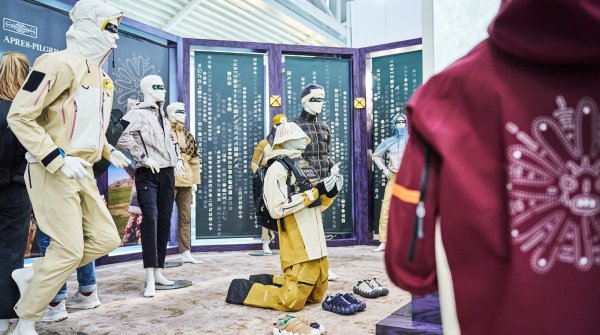 Sports BusinessSustainable ideas for store design
Sports BusinessSustainable ideas for store design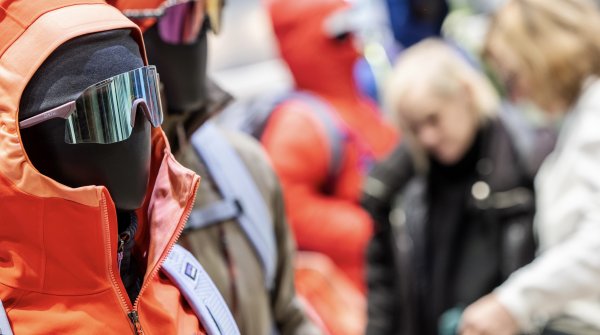 Sports BusinessSports retail in transition: the future playbook for 2025
Sports BusinessSports retail in transition: the future playbook for 2025
- ISPO awards
- Mountain sports
- Bike
- Design
- Retail
- Fitness
- Health
- ISPO Job Market
- ISPO Munich
- ISPO Shanghai
- Running
- Brands
- Sustainability
- Olympia
- OutDoor
- Promotion
- Sports Business
- ISPO Textrends
- Triathlon
- Water sports
- Winter sports
- eSports
- SportsTech
- OutDoor by ISPO
- Heroes
- Transformation
- Sport Fashion
- Urban Culture
- Challenges of a CEO
- Trade fairs
- Sports
- Find the Balance
- Product reviews
- Newsletter Exclusive Area
- Magazine
